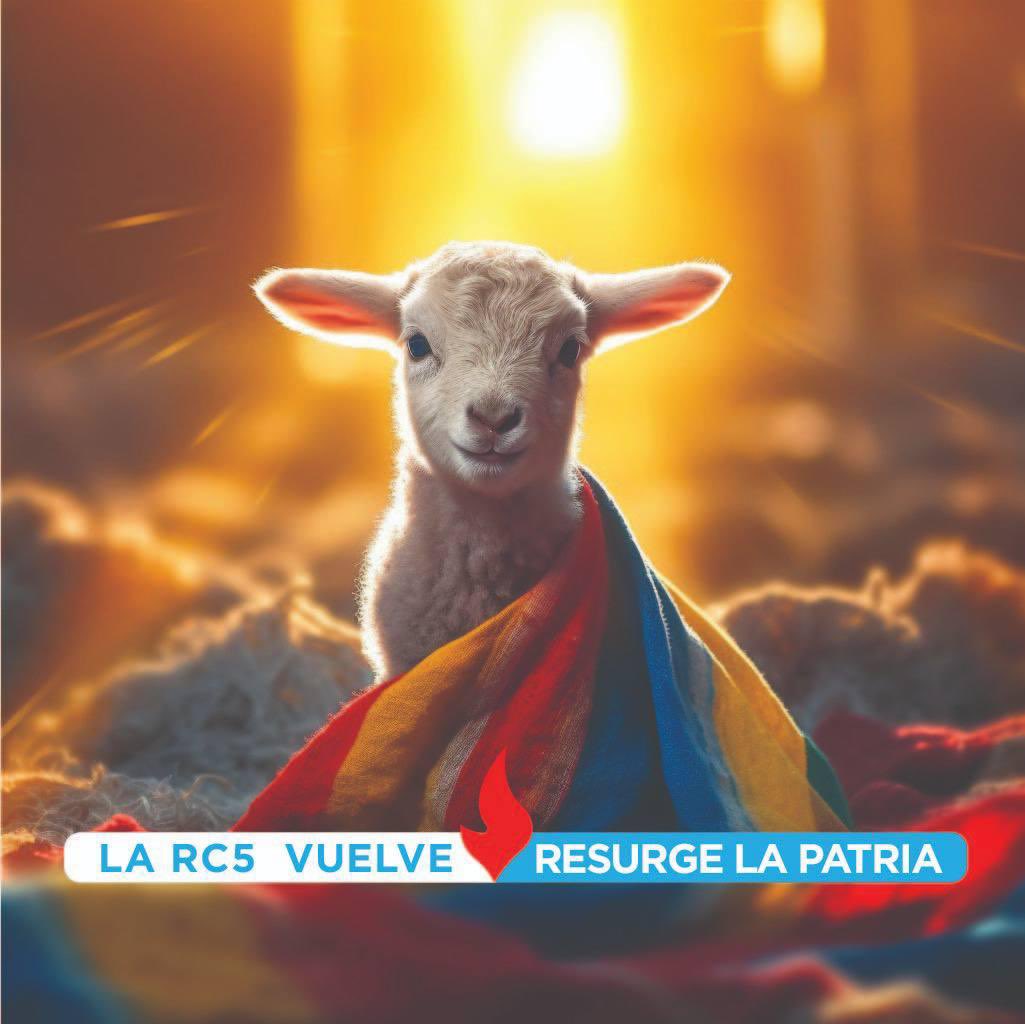The attempt to discredit the activists of the Revolución Ciudadana (RC) movement (the Citizen Revolution Movement) has become a symbol of pride and political identity with a great deal of creativity and tenderness. With a different tone and humour they have designed their electoral campaign in Ecuador in order to ward off the attacks that seek to discredit them ‘for acting like sheep’.
 Adriana Robreño
Adriana Robreño
Figures of sheep appear in everyday circumstances, in schools, hospitals, fields, cultural spaces, shops, among other places, together with messages related to the resurgence of the homeland and the return of public policies that favour different sectors.
Dozens of these images flood the social networks accompanied by the hashtags #ConLuisa, in allusion to Luisa González, presidential candidate of this political force, and #MeeeeeGusta, an onomatopoeia of the sound these creatures make.
While a few weeks ago they criticised the RC activists for acting like sheep and submitting to the will of someone else, in particular the movement’s leader, former president Rafael Correa, the campaign is now leading the social media trends.
Unlike other parties, this is – for the moment – the only different strategy, with a different tone and humour in view of the early general elections on 20 August. The party’s militants and supporters share the sheep and emphasise that with the RC, health, education, security, tourism, employment and opportunities for all will return.
 Those who believe that the little sheep on the web are a cynical statement of lack of judgement are missing the point, said lawyer Carlos Garcés, for whom the message is not to follow Correa unreservedly, but that the leader’s followers are not affected by insults. Analysts and polls agree that the RC candidate, Luisa González, has an advantage over her competitors in the polls, although there are doubts as to whether she will get the necessary support to win in the first round.
Those who believe that the little sheep on the web are a cynical statement of lack of judgement are missing the point, said lawyer Carlos Garcés, for whom the message is not to follow Correa unreservedly, but that the leader’s followers are not affected by insults. Analysts and polls agree that the RC candidate, Luisa González, has an advantage over her competitors in the polls, although there are doubts as to whether she will get the necessary support to win in the first round.
The organisation’s popular support was recently demonstrated in the provincial and municipal elections held on 5 February, where its cadres won the country’s most important prefectures and mayors’ offices.
Although the electoral campaign has not officially begun, the candidates, including González and his running mate, Andrés Arauz, are touring the country to publicise their proposals.
 Its government plan, presented to the National Electoral Council, considers neoliberalism to be the cause of the economic deterioration and blames the governments of Lenín Moreno (2017-2021) and Guillermo Lasso (2021-present) for the country’s situation. The RC emphasises the “recovery” of the homeland, vindicates Correa’s “won decade”, highlights his experience at the head of the executive branch, and stresses the need for a new constituent process to make the return of “correismo” viable. In interviews and statements to the local press, González insists that the RC has already given the country better days and knows how to do it again. PL
Its government plan, presented to the National Electoral Council, considers neoliberalism to be the cause of the economic deterioration and blames the governments of Lenín Moreno (2017-2021) and Guillermo Lasso (2021-present) for the country’s situation. The RC emphasises the “recovery” of the homeland, vindicates Correa’s “won decade”, highlights his experience at the head of the executive branch, and stresses the need for a new constituent process to make the return of “correismo” viable. In interviews and statements to the local press, González insists that the RC has already given the country better days and knows how to do it again. PL
(Translated by Cristina Popa – Email: gcpopa83@gmail.com)












.jpg)












